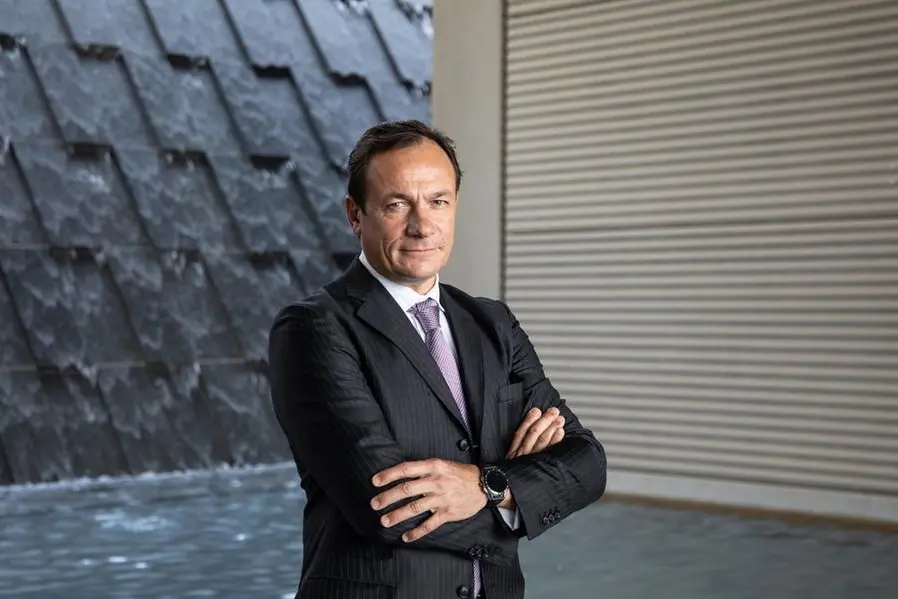PHOTO
While 2020 was the year when many companies began questioning whether they really needed office space, it has taken until this year for a post-Covid work format to take shape for them.
Though COVID-19 no longer dominates the news, it has nonetheless raised questions about the future of the commercial real estate market as companies scrambled to find some kind of stability that allowed their employees to work in offices while still mitigating virus spread.
Despite claims at the height of the pandemic that the death of the office market was nigh, Thierry Leleu, CEO of Equitativa, which manages UAE-based Emirates REIT (Real Estate Investment Trust), says it is a mistake to believe office space is a thing of the past. Emirates REIT is the UAE’s largest listed Shariah-compliant real estate investment trust.
The office still has a place
In an interview with Zawya, Leleu said, “You still need [office space] to drive creativity, to drive growth and to drive a work culture.”
Noting that there has been downsizing linked to COVID-19, he said that landlords must now not only attract tenants, but they must then also cherish them, treat them well, and be flexible, allowing them to grow into the space they need.
Emirates REIT’s $760 million portfolio includes commercial, retail and educational sector properties, which have seen differing impacts from the pandemic.
The commercial sector took a hit, he said, as people worked from home, but the educational sector was different. Although there was a demographic shift as the job market was hit by the pandemic, schools were still receiving their tuition fees. Enrolment was, however, lower due to the shift in population.
The pandemic hit to the commercial sector came on the back of an economy that was already “pretty sluggish”, said Leleu, and there was a double downside of both occupancy and rent rates. However, there has been a shift thanks to Dubai’s well-publicised handling of the pandemic and the city’s reputation as a business-friendly place.
Flagship asset Index Tower has seen a 13 percent quarter-on-quarter increase in occupancy to Q1 2022, and the company now has 81.4 percent occupancy across its portfolio, 70 percent across its office assets and 100 percent across education.
Back to school
Education assets have put Emirates REIT in the headlines over the past year. It sold the Jebel Ali School site to schools operator Taaleem after the former failed to pay its rent over a long period.
Then there was an investigation into misleading statements about another school site, for which it was fined by the Dubai Financial Services Authority (DFSA).
Despite this turbulence, LeLeu says education is a sector to which he remains attached. “There is a consistent demand for education, and at some point, universities will develop faster in the UAE,” he said.
The UK’s Durham School, which is to open its first school in Dubai in September in an Emirates REIT-owned property, is already considering expansion, as is longer-term tenant Lycee Francais Jean Mermoz.
“We are viewed by school operators as a very good partner [and] able to support their growth. Even Durham is already asking could we look at other locations,” said Leleu. “It’s a sector I remain really attached to because I like the stability that it offers. At the same time, we can be more value creating, value added, by repositioning ourselves.”
The Next Challenge
The next major challenge that the REIT faces is the refinancing of its $400 million sukuk, due to mature in December, after an attempt last year was rejected by bondholders. Leleu told us that it was at the forefront of the company’s priorities along with the operational improvements.
“Sheikh Muhammed Moeen [the finance director] and myself are spending a lot of time working on the sukuk refinancing,” said LeLeu, adding that they were maintaining several parallel tracks, including senior refinancing with local banks.
However, it would be remiss to focus on one potential pattern due to market volatility, he said. “The conversation is much more constructive than it was last year. […] barring unforeseen incidents linked again to the global macro interest rates hikes, things that are beyond our control, I am reasonably optimistic.”
Leleu only took over as CEO in May, having replaced Sylvain Vieujot, who now serves as executive deputy chairman. So what is it like, being the one steering the ship through the sukuk challenge?
“In my previous roles, I had set up REITs, I had managed them vis-à-vis investors, vis-à-vis lenders; I was very much the point of contact,” he said.
“What drives me is my fiduciary responsibility. At the end of the day, we are the depository of our investors’ money, and of our lenders support, and to me, every morning, I wake up saying, how can I protect and enhance what I’m the depository of?
“Being in a position where you have a refinancing which is in an environment that is volatile is obviously challenging, but in a rational market I don’t see any issues with refinancing, I have done refinancing in Europe that was much more difficult to do on the basis of the economic fundamentals than where we are.”
(Reporting by Imogen Lillywhite; editing by Seban Scaria)





















